*Major New York Times Bestseller *More than 2.6 million copies sold *One of The New York Times Book Review's ten best books of the year *Selected by The Wall Street Journal as one of the best nonfiction books of the year *Presidential Medal of Freedom Recipient *Daniel Kahneman's work with Amos Tversky is the subject of Michael Lewis's best-selling The Undoing Project: A Friendship That Changed Our Minds In his mega bestseller, Thinking, Fast and Slow, Daniel Kahneman, world-famous psychologist and winner of the Nobel Prize in Economics, takes us on a groundbreaking tour of the mind and explains the two systems that drive the way we think. System 1 is fast, intuitive, and emotional; System 2 is slower, more deliberative, and more logical. The impact of overconfidence on corporate strategies, the difficulties of predicting what will make us happy in the future, the profound effect of cognitive biases on everything from playing the stock market to planning our next vacation—each of these can be understood only by knowing how the two systems shape our judgments and decisions. Engaging the reader in a lively conversation about how we think, Kahneman reveals where we can and cannot trust our intuitions and how we can tap into the benefits of slow thinking. He offers practical and enlightening insights into how choices are made in both our business and our personal lives—and how we can use different techniques to guard against the mental glitches that often get us into trouble. Topping bestseller lists for almost ten years, Thinking, Fast and Slow is a contemporary classic, an essential book that has changed the lives of millions of readers.
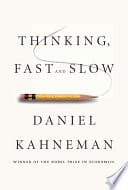
Average Rating
Informations
About the author
Daniel Kahneman
Author
Daniel Kahneman was an Israeli-American psychologist best known for his work on the psychology of judgment and decision-making as well as behavioral economics, for which he was awarded the 2002 Nobel Memorial Prize in Economic Sciences together with Vernon L. Smith. Kahneman's published empirical findings challenge the assumption of human rationality prevailing in modern economic theory. Kahneman became known as the "grandfather of behavioral economics."
Thinking, Fast and Slow
by Daniel Kahneman
Books Like Thinking, Fast and Slow
If you're looking for books similar to Thinking, Fast and Slow, here are some recommendations based on themes, tone, and narrative style.
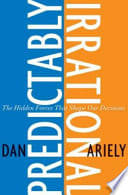
Predictably Irrational
Dan Ariely
A groundbreaking exploration of human decision-making that reveals the hidden forces driving our choices. Ariely demonstrates how seemingly rational people make systematically irrational decisions in predictable ways. The book examines cognitive biases and psychological mechanisms that influence our behavior, much like Kahneman's work. It offers fascinating insights into why we make illogical choices in economics, relationships, and everyday life.
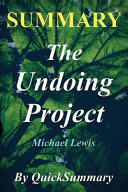
The Undoing Project
Michael Lewis
A fascinating account of Daniel Kahneman and Amos Tversky's groundbreaking collaboration that revolutionized our understanding of human decision-making. Lewis explores the personal and professional relationship between these two psychologists who challenged existing theories about human rationality. The book provides deep context to Kahneman's work, revealing the human story behind revolutionary psychological research.
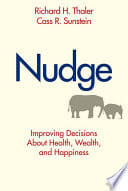
Nudge
Richard Thaler
A revolutionary look at how small interventions can dramatically influence human behavior and decision-making. Thaler explores how subtle 'nudges' can help people make better choices in areas like health, wealth, and happiness. The book combines psychological insights with practical applications, similar to Kahneman's approach to understanding cognitive processes. It provides a compelling examination of how we can design environments to improve decision-making.
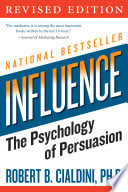
Influence
Robert Cialdini
A comprehensive study of the psychology of persuasion and why people say 'yes'. Cialdini explores the six key principles that drive human decision-making and social influence. The book provides deep insights into cognitive triggers that shape our choices, complementing Kahneman's exploration of mental systems. It offers practical understanding of how we are influenced in various contexts.
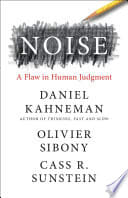
Noise
Daniel Kahneman
A follow-up to Thinking, Fast and Slow that explores systematic errors in judgment across various fields. Kahneman examines how seemingly objective professionals make inconsistent decisions. The book provides deeper insights into cognitive biases and judgment errors. It extends the exploration of human decision-making begun in his previous work.
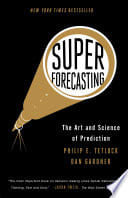
Superforecasting
Philip Tetlock
An exploration of how some people become exceptionally good at predicting future events. Tetlock examines the cognitive skills that enable more accurate forecasting and decision-making. The book complements Kahneman's work by diving deep into how we can improve our predictive abilities. It offers insights into cognitive strategies for better judgment.
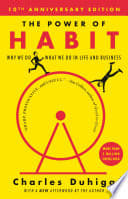
The Power of Habit
Charles Duhigg
An illuminating investigation into how habits form and why they exist. Duhigg explores the science behind habit formation, showing how understanding our mental patterns can lead to personal and organizational transformation. The book delves into the cognitive mechanisms that drive human behavior, drawing parallels to Kahneman's exploration of mental systems. It offers insights into how our automatic behaviors shape our lives.
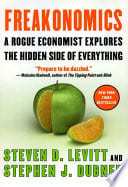
Freakonomics
Steven D. Levitt
A revolutionary approach to understanding human behavior through economic principles. Levitt and Dubner explore unexpected connections and counterintuitive insights into why people do what they do. The book challenges conventional wisdom and reveals hidden patterns in human decision-making. It shares Kahneman's approach of using rigorous analysis to uncover surprising truths about human behavior.
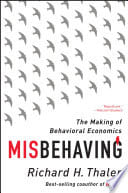
Misbehaving
Richard Thaler
An exploration of behavioral economics and how traditional economic theories fail to account for human irrationality. Thaler chronicles the development of behavioral economics and challenges standard economic assumptions. The book provides a deep dive into how psychological factors influence economic decisions, similar to Kahneman's approach to understanding cognitive processes. It offers compelling insights into human economic behavior.
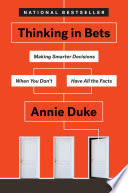
Thinking in Bets
Annie Duke
An exploration of decision-making through the lens of poker strategy and cognitive psychology. Duke applies insights from professional poker to understanding how we make decisions under uncertainty. The book shares Kahneman's interest in examining cognitive processes and decision-making strategies. It offers practical approaches to improving our decision-making skills.
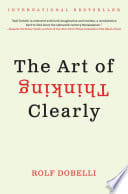
The Art of Thinking Clearly
Rolf Dobelli
A practical guide to recognizing and overcoming cognitive biases that lead to poor decision-making. Dobelli presents 99 short chapters exploring different thinking errors and psychological traps. The book shares Kahneman's approach of revealing systematic flaws in human reasoning. It offers actionable insights into improving our thinking processes.
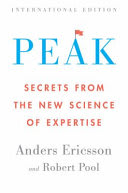
Peak
Anders Ericsson
A groundbreaking look at how experts develop exceptional performance through deliberate practice. Ericsson explores the cognitive mechanisms behind skill acquisition and mastery. The book shares Kahneman's interest in understanding cognitive processes and human potential. It provides insights into how we can systematically improve our abilities.
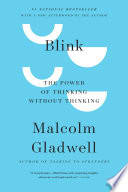
Blink
Malcolm Gladwell
An exploration of rapid cognition and how we make decisions in the blink of an eye. Gladwell examines the power of thinking without thinking, investigating how our unconscious mind processes information instantaneously. The book complements Kahneman's work by diving deep into intuitive decision-making and its strengths and limitations. It provides fascinating insights into how first impressions and snap judgments work.
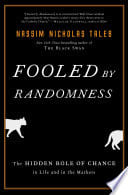
Fooled by Randomness
Nassim Nicholas Taleb
An examination of the role of chance and uncertainty in our lives and decision-making. Taleb explores how we misunderstand randomness and attribute success to skill rather than luck. The book shares Kahneman's critical approach to understanding cognitive biases and human perception. It provides profound insights into how we interpret and misinterpret random events.
No account connected — sign in to comment.
